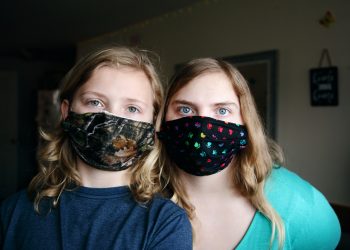Authors of a recent study note that the adult brain is organized into “distinct functional networks, forming the basis of information processing and determining individual differences in behavior.”
The authors are trying to answer whether this network organization is “determined and present at birth” and are trying to pinpoint what the individual variability in this organization is in newborns less than four weeks old (neonates).
Previous studies indicate that adults have seven functional networks “that support distinct perceptual and cognitive functions” in the brain: “visual, default, limbic, somatomotor, ventral attention, dorsal attention, and control networks.”
This pioneering study takes a look at neonates’ brains via MRI scans, finding five networks present: the visual, default, sensorimotor, ventral attention, and high-level vision (corresponding to dorsal attention in adults) networks.
The study is especially significant because it suggests individual variability in those networks in newborns – which may have, according to a news release, implications for how genetics affects behavior in adults.
“For centuries, humans have wondered about what makes them unique and the role of genetic programming versus our lifetime of experience,” says Zeynep Saygin, senior author of the study and assistant professor of psychology at The Ohio State University.
“Our study shows variability in the brain at birth that may be related to some of the behavioral differences we see in adults.”
The study, led by M. Fiona Molloy, a psychology graduate student at Ohio State, was published in the journal NeuroImage.
The authors analyzed fMRI (functional magnetic resonance imaging) scans of the brains of 267 newborns, most less than a week old, who were part of the Developing Human Connectome Project. All the babies were scanned during their sleep for 15 minutes each.
The study analyzed the smallest bits of babies’ brains possible with MRI – called voxels or volumetric pixels – to determine how the signals of each voxel were related to other voxels in the brain.
“Even when we’re sleeping, the brain is active and different parts are communicating with each other,” Saygin says.
“We identify networks by finding which parts of the brain show similar patterns of activity at the same time – for example when one area activates, the other does too. They are talking to each other.”
The researchers found five networks in babies that were similar to those found in adults. Adults have two additional networks that were not found in the brains of the neonates: These are both involved with higher-level functions, Saygin explains.
They write:
“There were no neonate networks matching the control or limbic adult networks … This suggests that regions in the limbic and control networks lack discrete connectivity patterns in neonates such that they cannot be easily separated from the rest of the cortex.”
The control network “allows adults to make plans to meet goals,” the news release notes. The limbic network is “involved in emotional regulation.”
“Babies have little cognitive control and emotional regulation, so it is not surprising that these networks aren’t developed,” Saygin notes.
“But one possibility would have been that they are set up at birth and just need to be honed. That’s not what we found, though. Those networks are not there at all yet and must develop through experience.”
The researchers also looked into individual differences in the brain networks of the newborns in the study. Their findings indicated that the ventral attention network displayed the most variability in the newborns. The ventral attention network is the one involved in directing attention to important stimuli the babies come across in the world, especially something that may be unexpected.
“Our results suggest that the ventral attention network is a stable source of individual variability that exists at birth and perhaps persists through the lifetime,” Saygin adds.
In adults, the individual differences in network organization are linked to behavior and different disorders.
“We see individual differences in network organization as early as birth, and it could be interesting to see if these differences predict behavior or risk of psychological disorders later in life,” Molloy says.
In another analysis, the authors used tissue samples of human brains that were available through the Allen Human Brain Atlas to examine how differences in the brain networks in the newborns may be linked to differences in gene expression – ”the process by which the instructions in our DNA are converted into a functional product, such as a protein.”
The authors write: “Overall, we found neonatal connectomes (even at the voxel-level) can reveal broad individual-specific information processing units.” They add that “The presence of individual differences in neonates and the framework for personalized parcellations demonstrated here has the potential to improve prediction of behavior and future outcomes from neonatal and infant brain data.”
The authors found multiple genes from the brain tissue samples that may have influenced the specific brain organizations they found in individual newborns in the study.
“This might uncover a potential genetic basis for why we’re seeing these differences in the networks of newborns in our study,” Molloy explains.
The researchers plan to explore how these networks develop over a child’s lifetime to better grasp the role of genetic programming (nature) and experience (nurture) in producing variability in these networks.
“We want to further understand the developmental trajectory of these networks to learn how genes and experience relate to future behavior and outcomes,” Saygin says.











